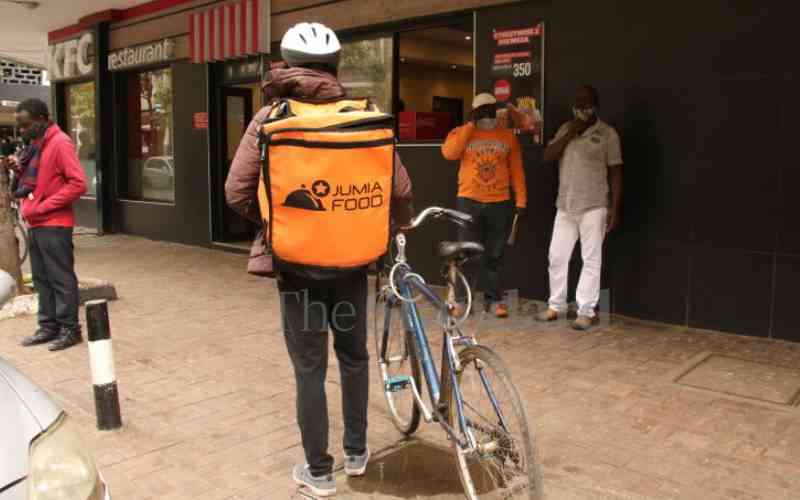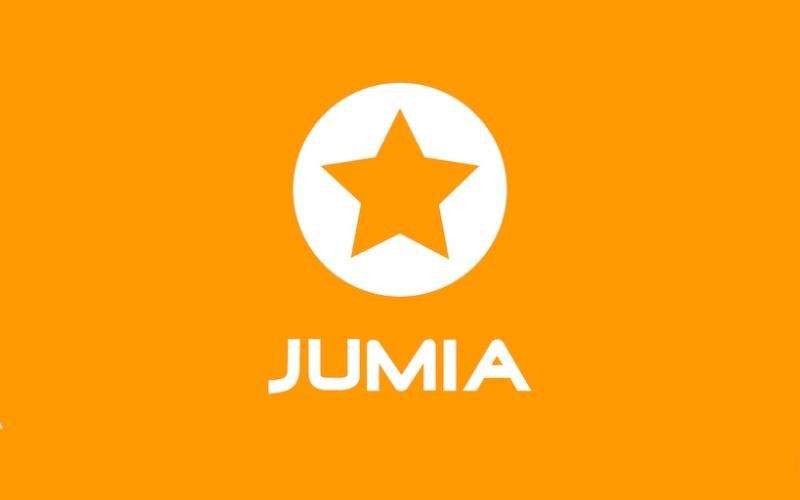
Inside Jumia’s warehouse off Mombasa Road, Nairobi, is a beehive of activities.
Yet the activities seem to be devoid of the buzz characteristic of a beehive.
Work is done silently and movements are stealth. We find the workers hunched over on assortment of goods speaking in low-tones. It is as though raising their voice would interfere with scheme of things here.
They move gingerly from one point to the other, fearful of any misstep that might begin Jumia’s apocalypse by destroying what is basically the source of their business - trust.
“All these things you see here do not belong to us (Jumia),” says Jumia Services Managing Director Vishal Haria, as he waves across the entire breadth of the warehouse.
That is why our entry into the warehouse was a little uncomfortable for us.
We were ultra-frisked. We had to leave our mobile phones, tablets, laptops, watches and cameras at the entrance with the security guard.
Few outsiders are allowed into the warehouse. Anyone who enters and leaves, irrespective of his seniority in the firm is searched. “There might be an item similar to what you carry, and so as not to take any chances, you would rather leave yours outside,” said a security guard as we passed through a metal detector.
Jumia is an online marketplace where vendors selling a variety of goods connect with buyers. When a customer orders a product online, he trusts that Jumia will deliver it in good time and shape. The vendor expects that after the product has been safely delivered, they will get paid.
In a society where online trade is still viewed with suspicion, Jumia is doing everything to convince Kenyans that buying your two kilo packet of unga from an online store is not different from buying it from an offline shop.
Identification number
If anything, says Jumia, it is better than buying offline as there are no overhead costs compared to brick and mortar business.
We spot a team of three people wrapping packets of maize flour in polythene bags. “That is part of the protective measure taken against damage to the goods,” says Haria, pointing at the packets of unga.
He points out that the unga which after being wrapped will be stamped with a unique identification number will then be stored. Should you order for a packet of unga from the Jumia app or website, you will either get it here or directly from the vendor. These packets of maize flour are part of what Jumia describes as ‘pre-collect goods’, where vendors bring into the warehouse their goods without an order from the customer.
Stay informed. Subscribe to our newsletter
There is also ‘drop-ship’ where goods are brought to any of the five hubs on order basis and from where they are delivered to the customer.
However, even before the unga was wrapped and stored- also on shelves with unique identification numbers, it went through a quality checks.
This was when they were brought into the warehouse. For their orders, customers can pre-pay before delivery or pay on delivery. The latter is done for the sake of convenience.
“A vast of majority of the Kenyan population has not tried e-commerce before,” says Haria, noting that such options are given for people to try e-commerce. “You can also reject the product on the spot. For example, if you have bought a T-shirt and realise that it was not the right size or colour that you wanted,” explains Haria.
But there is also a risk as mischievous individuals might turn this into a game of ordering and rejecting at whim. And Haria agrees that has been happening, albeit it has been declining with repeat buyers.
The company which started in Nigeria has no problem with this misbehaviour, although it is evidently hurting their bottom line. They return rejected orders without questions and return pre-paid cash without hard feelings. “Customers are excited and want to try as many times as possible,” says Haria. “We are creating the trust and this is the cost for it,” he adds.
However, they have put in place stringent measure to combat fraud management.
So, for example, you can’t send back a different phone from the one you bought as they already have its International Mobile Equipment Identity a unique 15-digit serial number given to every mobile phone which can then be used to check information such as the phone’s country of origin etc.
But even more critical for Jumia, unlike other online marketplace such as OLX and to some extent Uber, manages the entire flow. “Jumia takes care of all responsibilities first.
The customer does not get to interact with vendors, says Haria describing theirs as a managed marketplace just as Amazon and Alibaba.
When a customer orders a product, whether it is Jumia’s warehouse or is coming from the vendor, it has to undergo another quality control test.
All the details that would locate the customer, such his name, telephone number and physical location are attached on the product.
Logistics partners
From here, it is sorted according to according to the zone or road to be delivered.
Jumia logistics partners, who are looped to the system, will see that the products are ready for delivery and they will come for delivery. The customer will be notified that the product is on its way being delivered.
If the delivery is Nairobi, it will take less than a day to have it delivered, but outside the city, it might take over a day depending on the distance.
Jumia Kenya managing director hopes Kenyans will not just buy a product from the site but also from other online businesses, noting that the digital economy holds potential to growing Kenya’s GDP and creating more employment.
[email protected]
 The Standard Group Plc is a
multi-media organization with investments in media platforms spanning newspaper
print operations, television, radio broadcasting, digital and online services. The
Standard Group is recognized as a leading multi-media house in Kenya with a key
influence in matters of national and international interest.
The Standard Group Plc is a
multi-media organization with investments in media platforms spanning newspaper
print operations, television, radio broadcasting, digital and online services. The
Standard Group is recognized as a leading multi-media house in Kenya with a key
influence in matters of national and international interest.
 The Standard Group Plc is a
multi-media organization with investments in media platforms spanning newspaper
print operations, television, radio broadcasting, digital and online services. The
Standard Group is recognized as a leading multi-media house in Kenya with a key
influence in matters of national and international interest.
The Standard Group Plc is a
multi-media organization with investments in media platforms spanning newspaper
print operations, television, radio broadcasting, digital and online services. The
Standard Group is recognized as a leading multi-media house in Kenya with a key
influence in matters of national and international interest.









